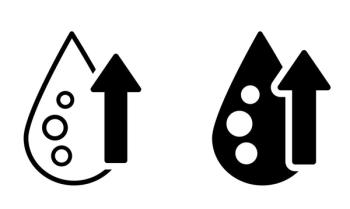
Investigational Drug Has Success Against Familial Hypercholesterolemia
PHILADELPHIA -- An investigational drug appears to be effective against homozygous familial hypercholesterolemia, according to a small preliminary dose-escalation trial.
PHILADELPHIA, Jan. 10 -- An investigational drug appears to be effective against homozygous familial hypercholesterolemia, according to a small preliminary dose-escalation trial.
However, these benefits were offset by significant elevations in liver enzymes and hepatic fat, said Daniel J. Rader, M.D., of the University of Pennsylvania here, and colleagues, in the Jan. 11 issue of the New England Journal of Medicine.
The study included three men and three women with homozygous genetic mutations that disable the low-density lipoprotein (LDL) receptor gene resulting in hypercholesterolemia. These participants received BMS-201038, a drug that inhibits microsomal triglyceride transfer protein to reduce LDL production, at four different doses each for four weeks.
The researchers found that the highest 1.0 mg/kg/day dose reduced LDL cholesterol by 50.9% and apolipoprotein B levels by 55.6% from baseline (P
In the study, all participants had genetically confirmed homozygous familial hypercholesterolemia. They started open-label therapy with BMS-201038 at 0.03 mg/kg/day and titrated up to the maximum 1.0 mg/kg/day dose. All other lipid-lowering treatments, including apheresis, were stopped at least a month before baseline.
A diet with less than 10% of calories from fat was started at the baseline visit with the assistance of a dietician, because the microsomal triglyceride transfer protein inhibited by the study drug is used by the intestine and its absence could cause steatorrhea.
The dose-response findings for total cholesterol were:
- A nonsignificant reduction of 4.8% with the 0.03-mg/kg dose (P=0.29).
- A nonsignificant reduction of 9.3% with the 0.1-mg/kg dose (P=0.23).
- A 29.8% reduction with the 0.3-mg/kg dose (601 mg/dL versus 851 mg/dL at baseline, P
The most common potentially drug-related side effect (five of six patients) was mild to moderated episodes of increased stool frequency, which appeared to be temporally related to fat consumption.
Although none of the patients withdrew due to adverse events, there were elevated liver aminotransferase levels in four of the six patients. Hepatic fat, measured using chemical-shift MRI, increased "substantially" in four patients as well.
Interestingly, the magnitude of these effects was not consistent among the patients. The researchers reported:
- Two patients did not have elevated liver enzyme levels and only minimal hepatic fat increases of less than 10%,
- Two patients had dose-dependent liver enzyme level elevations and a hepatic fat content of 18% to 24%, and
- Two patients had substantially elevated aminotransferase levels (one had grade three elevation at the 0.3-mg/kg dose) with an increase in hepatic fat content to more than 30% at the 1.0-mg/kg dose.
The two patients with the highest hepatic fat increases may have been predisposed to this since one had marked hypertriglyceridemia and the other was found to have been consuming substantial amounts of alcohol during the study.
Although liver enzyme and hepatic fat levels returned to baseline within four to 14 weeks after therapy ended for all patients, future studies will need to be done carefully monitoring long-term use, the researchers said.
"The clinical significance of hepatic fat accumulation and the probability of its evolution to fibrotic liver disease are still debated," the authors wrote, "but substantial elevation of aminotransferase levels and hepatic steatosis are potentially serious adverse events that should not be underestimated."
Newsletter
Enhance your clinical practice with the Patient Care newsletter, offering the latest evidence-based guidelines, diagnostic insights, and treatment strategies for primary care physicians.

































































































































